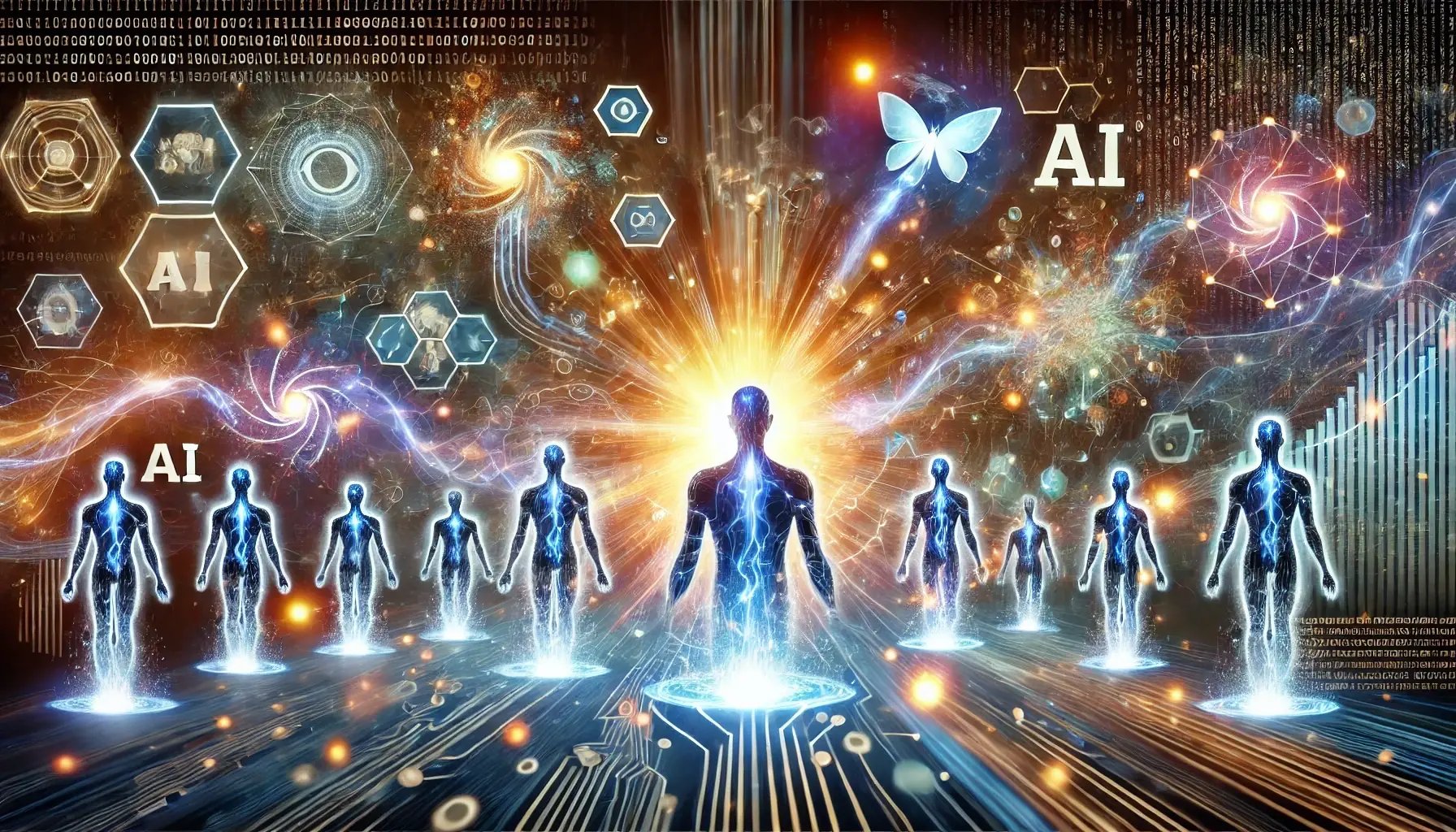June 26, 2024

Image created by DALL·E, an AI model developed by OpenAI.
Will AI Replace B2B Marketers—or Supercharge Them?
Early estimates of how much AI can improve workplace productivity range from 20% to 80%. For marketing functions at small- to mid-sized B2B organizations, the gains can be toward the high end of the range—or even above it.
Improving Productivity
The definition of productivity is the ratio of output produced to the inputs used in the production process. This leads many to assume that using AI to improve productivity = reducing employees (a.k.a., inputs).
What impact AI in general will have on the overall labor force is still unknown at this point. But for B2B marketing teams at small- to mid-sized companies, the improved productivity will come from significantly increasing the quantity and quality of the output with the same number of employees.
This is driven by two factors:
1. Marketing can be very complex, spanning everything from advertising creative, graphic design, and content creation on the one hand to database management, quantitative analyses, and ROI calculations on the other.
2. Very few marketing teams at small- to mid-sized B2B firms are staffed to do it all. As a result, they prioritize marketing efforts, do the best they can, and fill in the gaps with outside resources when budgets permit.
In this environment, AI won’t replace marketers—it will supercharge them.
More Time…
As with many business functions, marketing is filled with repetitive, sometimes tedious, tasks: developing campaign calendars and processes; maintaining databases and lists; generating large amounts of content and then customizing it to the requirements of multiple distribution channels; collecting, integrating, and analyzing data points from multiple platforms (web, email, social, event, CRM); etc.
Properly employed, AI significantly reduces the time and effort required for marketers to accomplish these tasks.
… To Do Better Work
This will free employees to spend more time on improving not only the quantity of marketing output but the quality as well.
One of the findings from early research into AI productivity is that AI improves the output of relatively less skilled workers more than higher skilled ones. For example, someone who is a poor writer will benefit more from using AI to generate content than someone who is an excellent writer.
Marketers at small- to mid-sized B2B firms wear so many hats, no one could possibly be expert at all of them. In those areas where team members are less skilled, AI (again if employed correctly) can improve the quality of their work. Even in areas where marketers are skilled, AI can help them accomplish more in less time and even take their marketing efforts to the next level.
Less skilled writers will come better ones while excellent writers can devote more time to customizing content, less experienced social media marketers will become more adept while veterans can devote more time to analysis, those with limited design experience will become better while experienced designers can do things that weren’t possible before, etc.
…Resulting in Supercharged Marketing
How do you quantify the improvement in productivity when a marketing team, for example, can use AI to devote less time to compiling metrics for reports and implement, say, compelling social media video campaigns that they didn’t have the skills or resources to do in-house before?
For those who embrace it and implement it properly, AI will supercharge chronically understaffed marketing teams at small- to mid-sized B2B organizations by freeing them from repetitive tasks, enabling them to stretch their capabilities, and empowering them to take their marketing efforts to the next level.
To take your marketing to the next level using AI, check out our Marketing AI Accelerator Program (MAAP) HERE.
